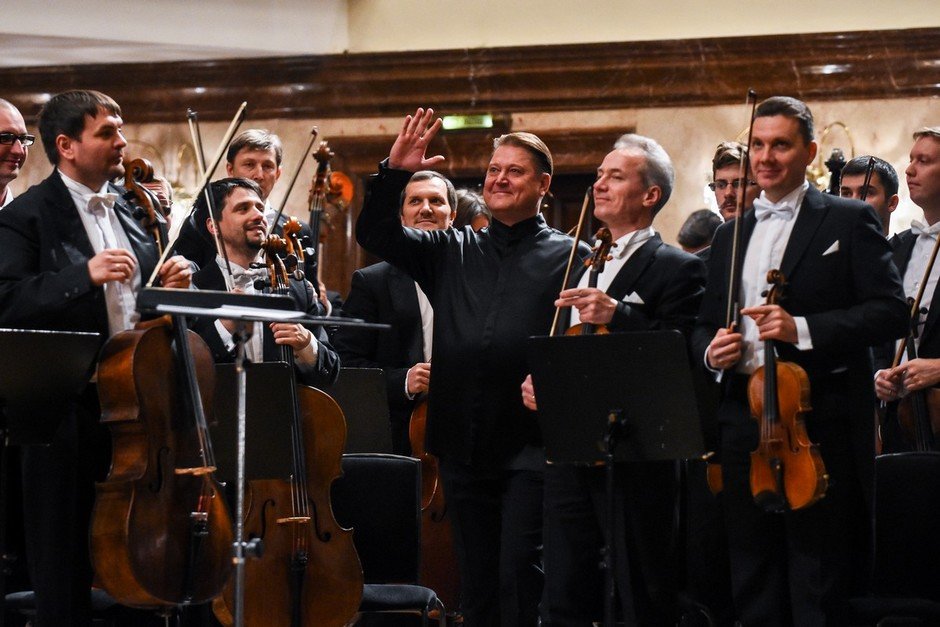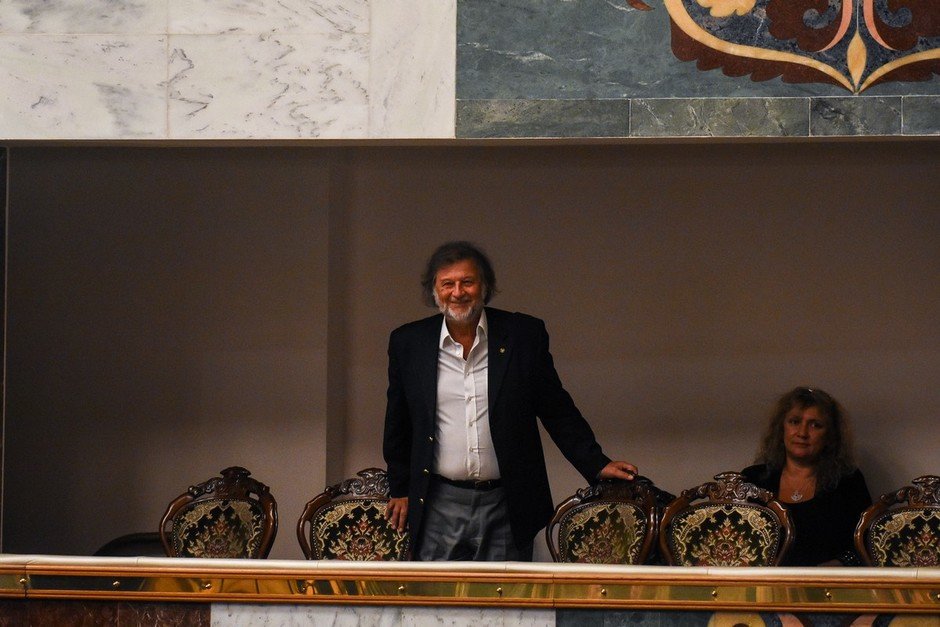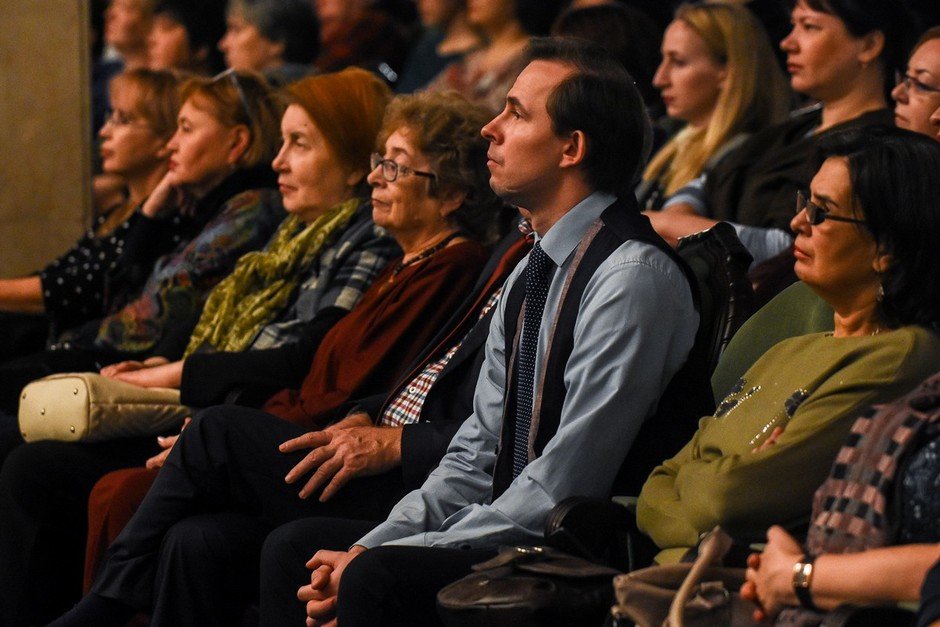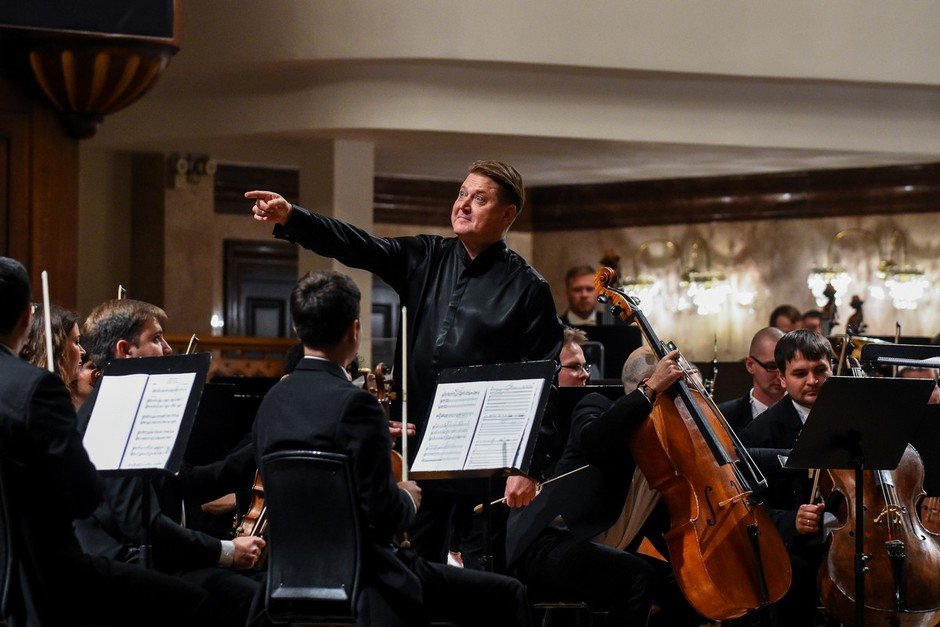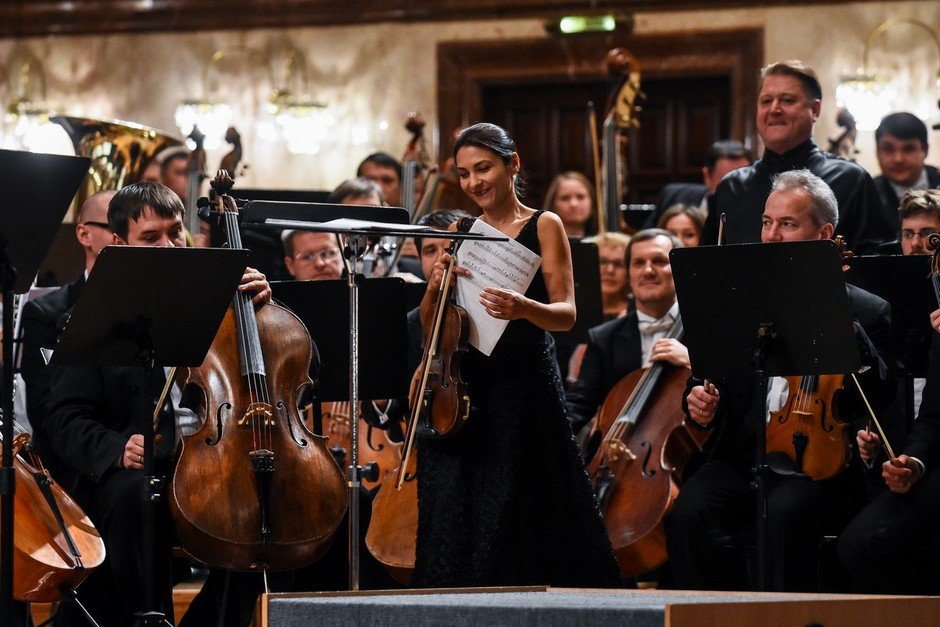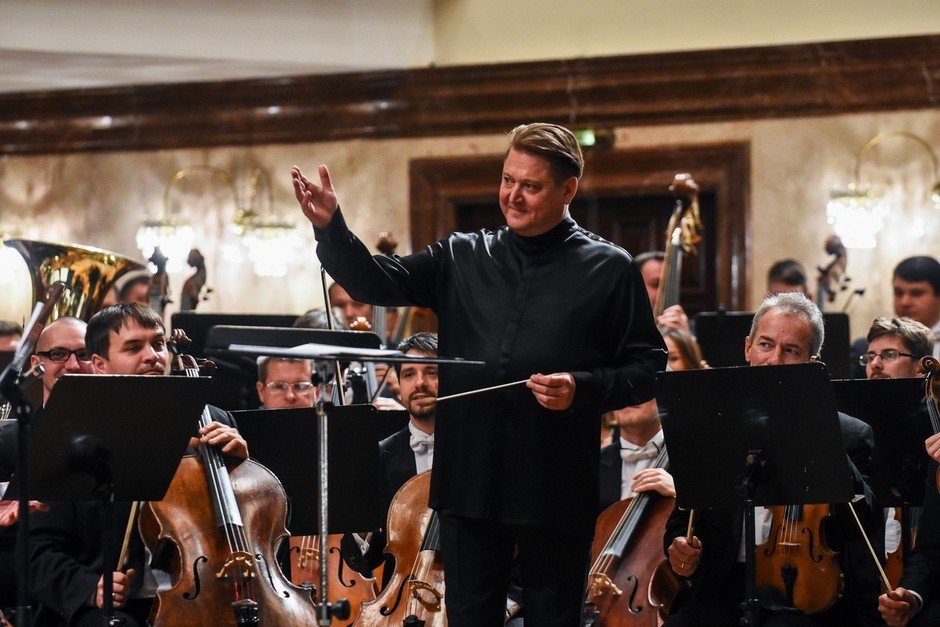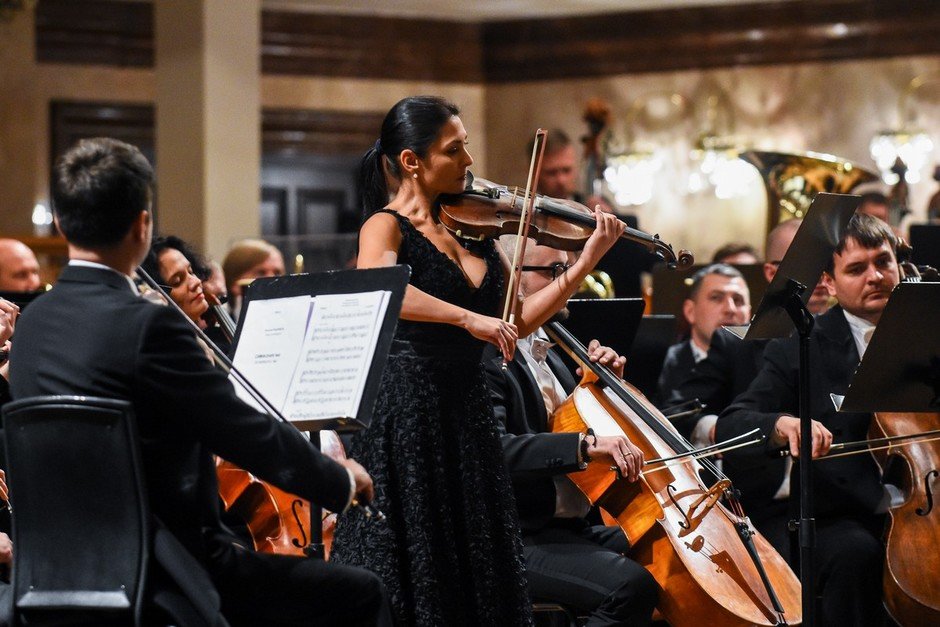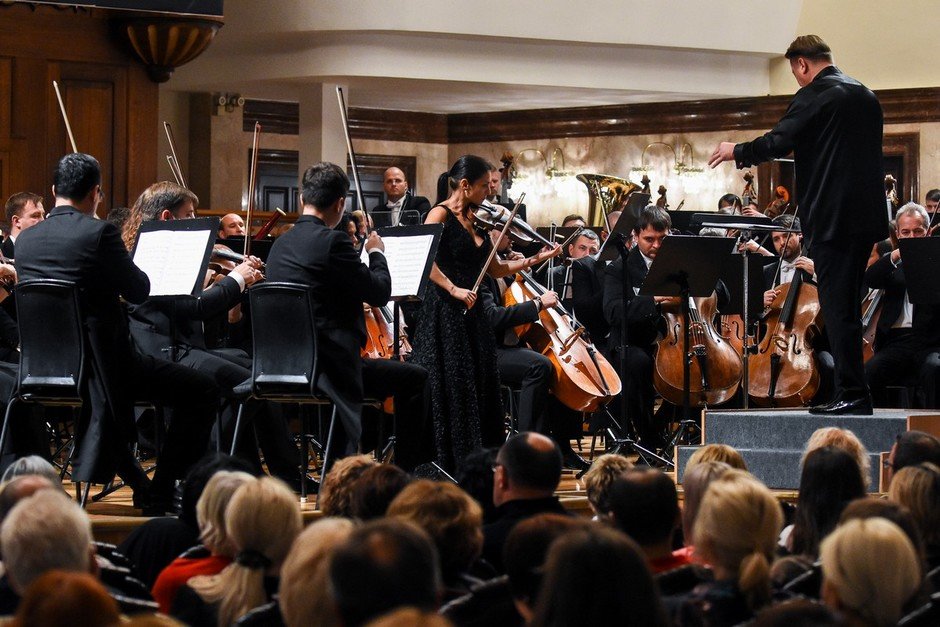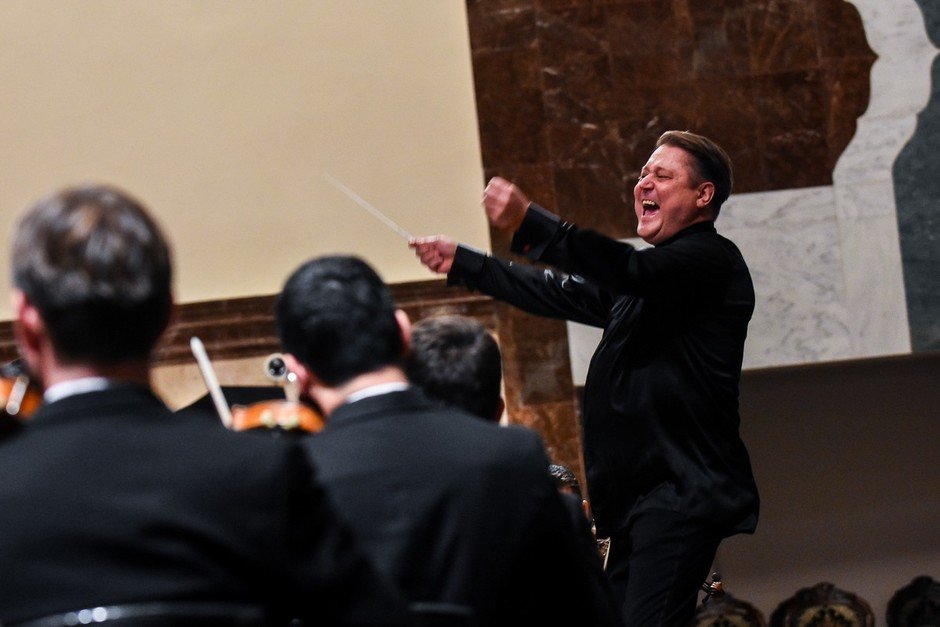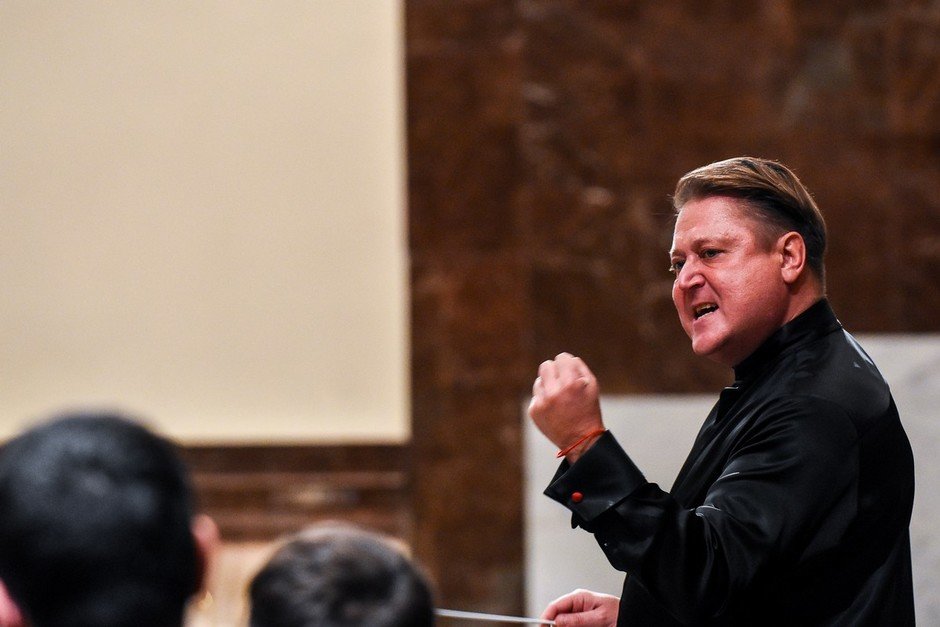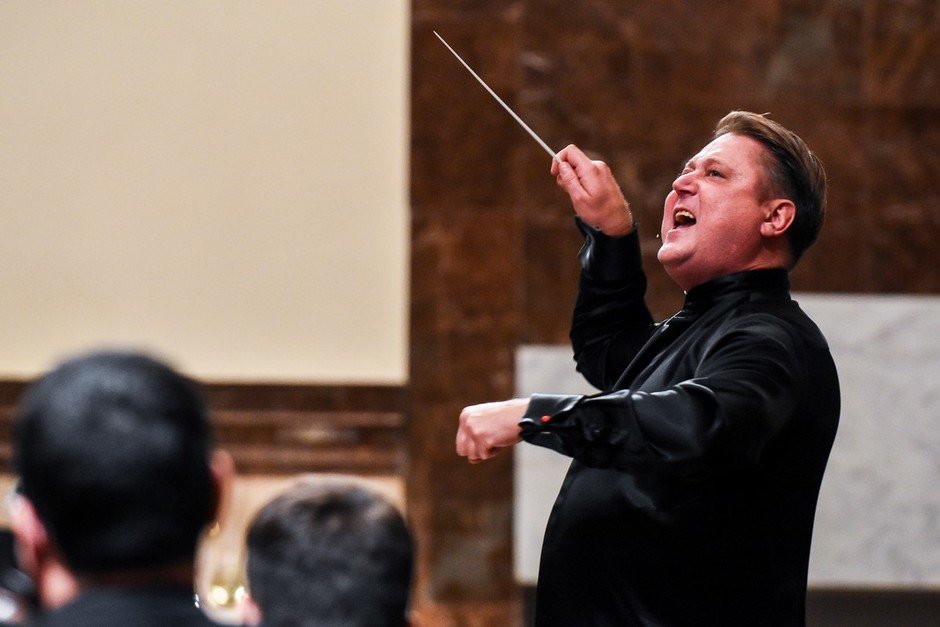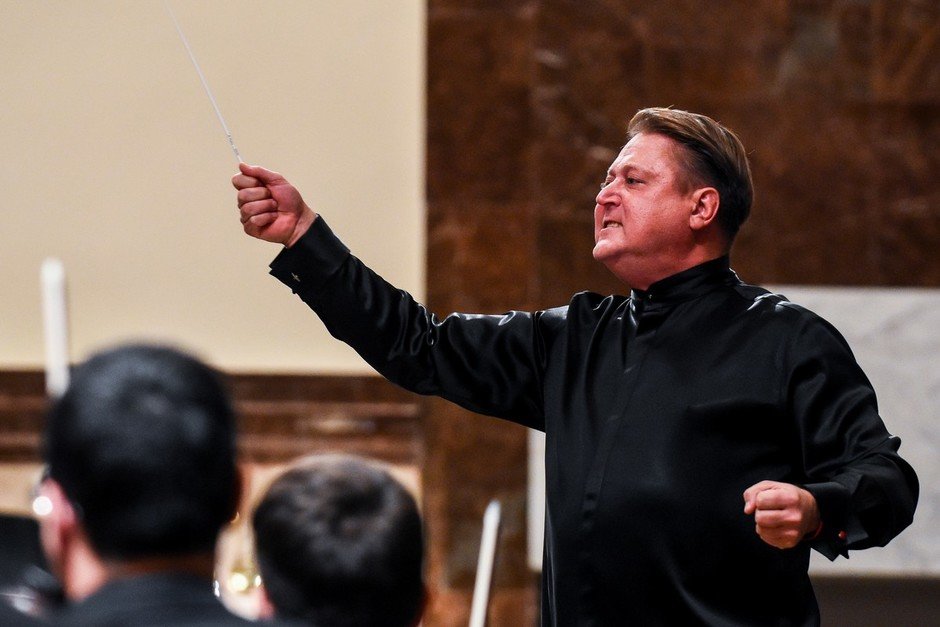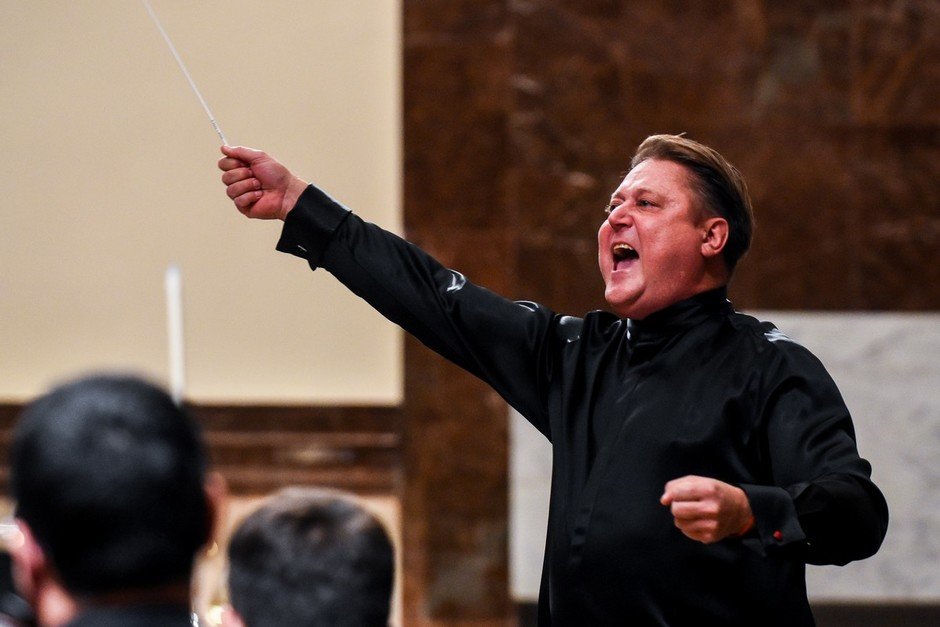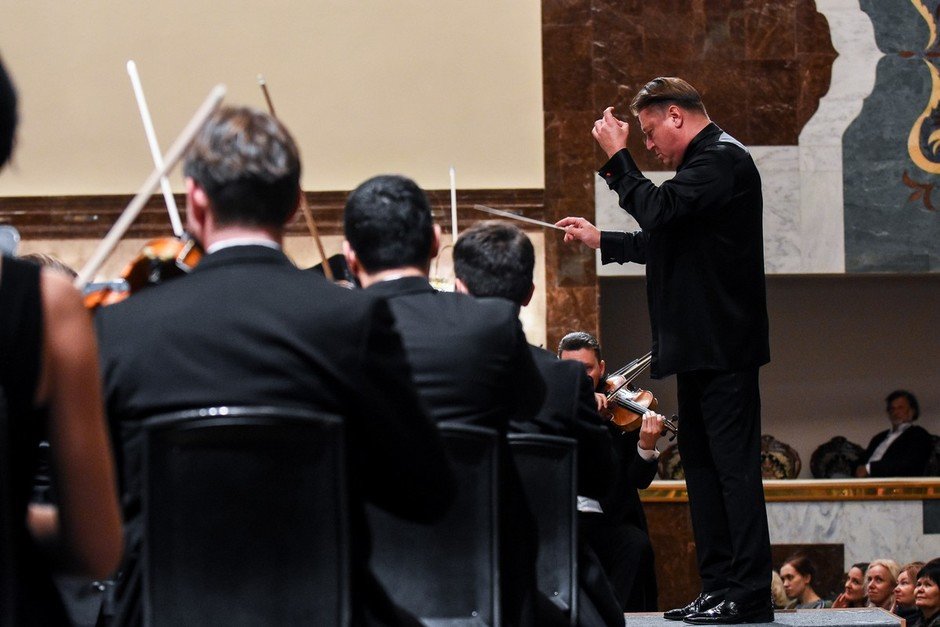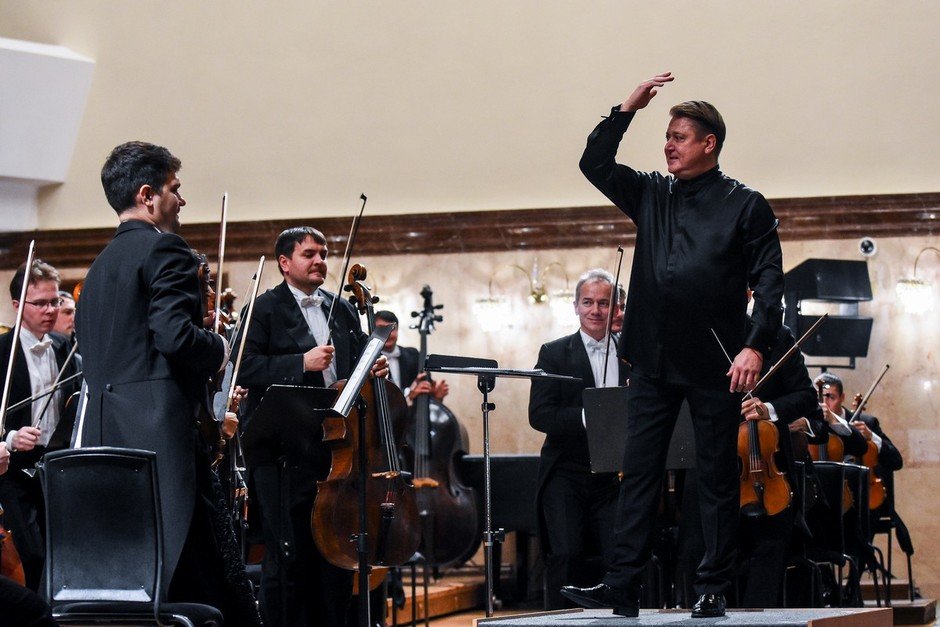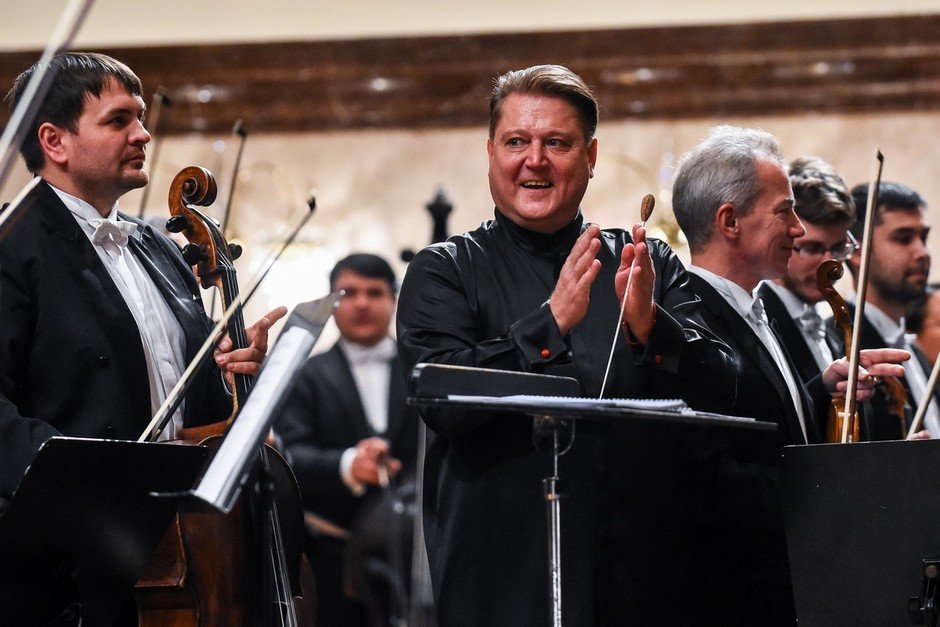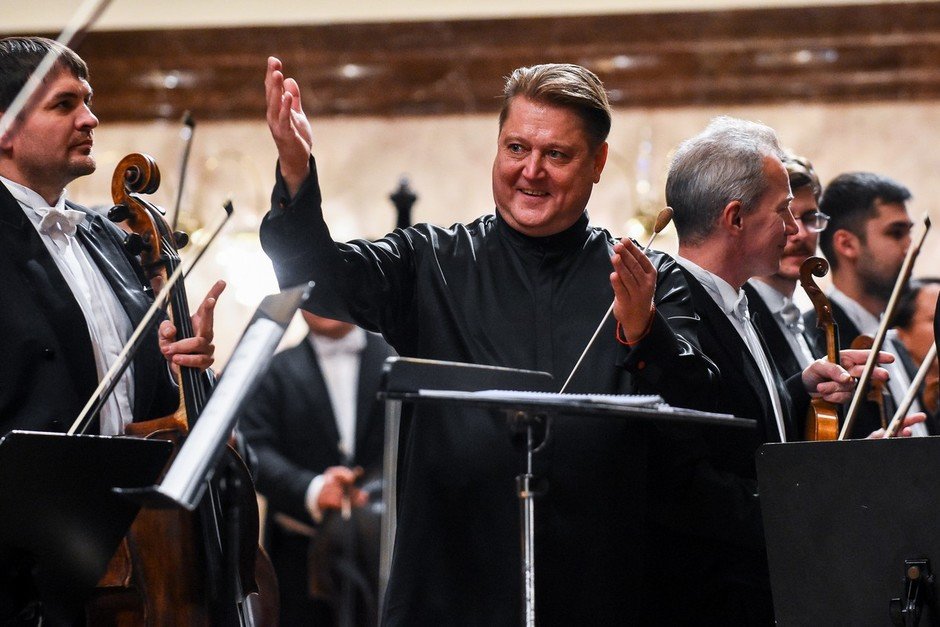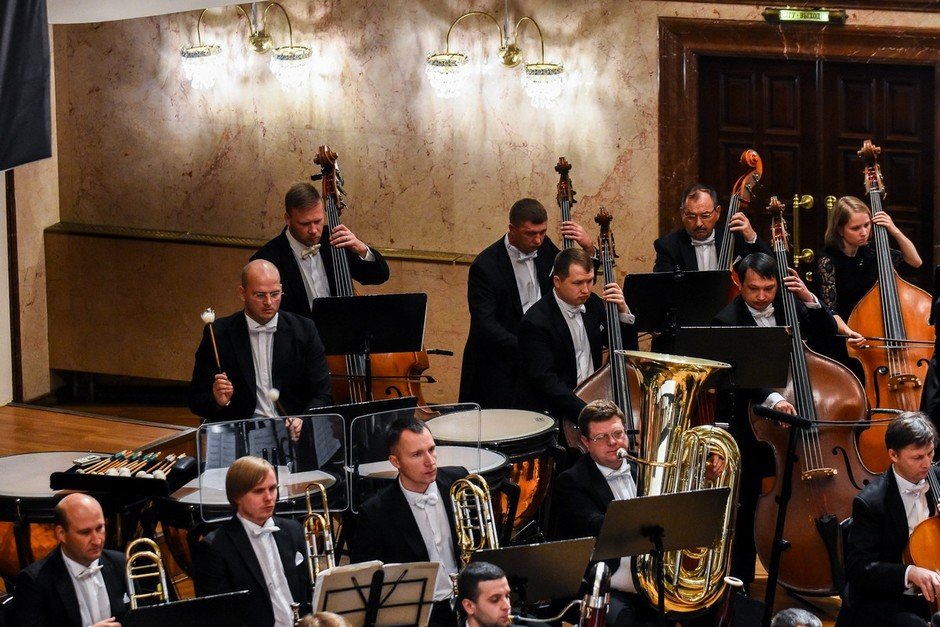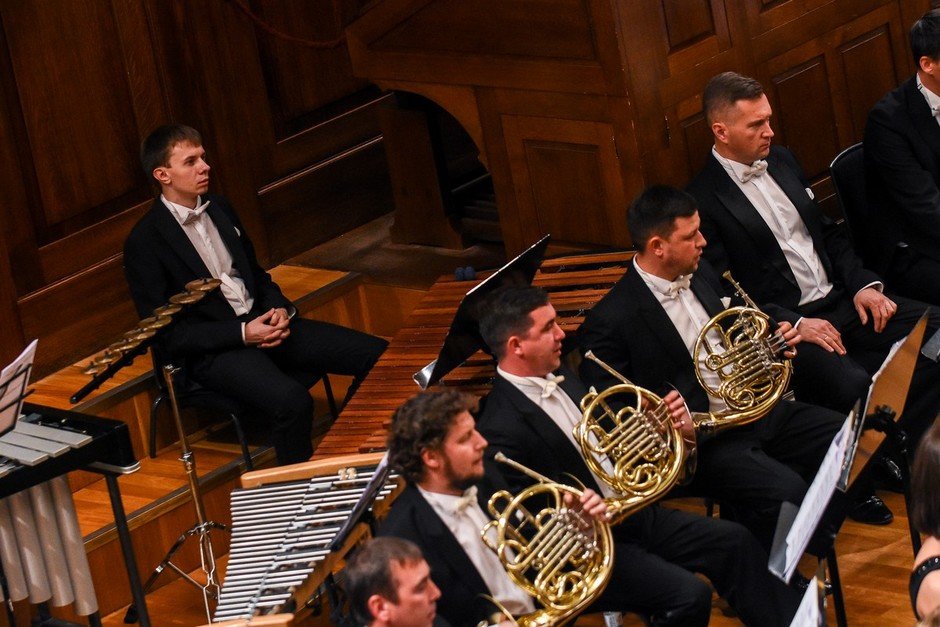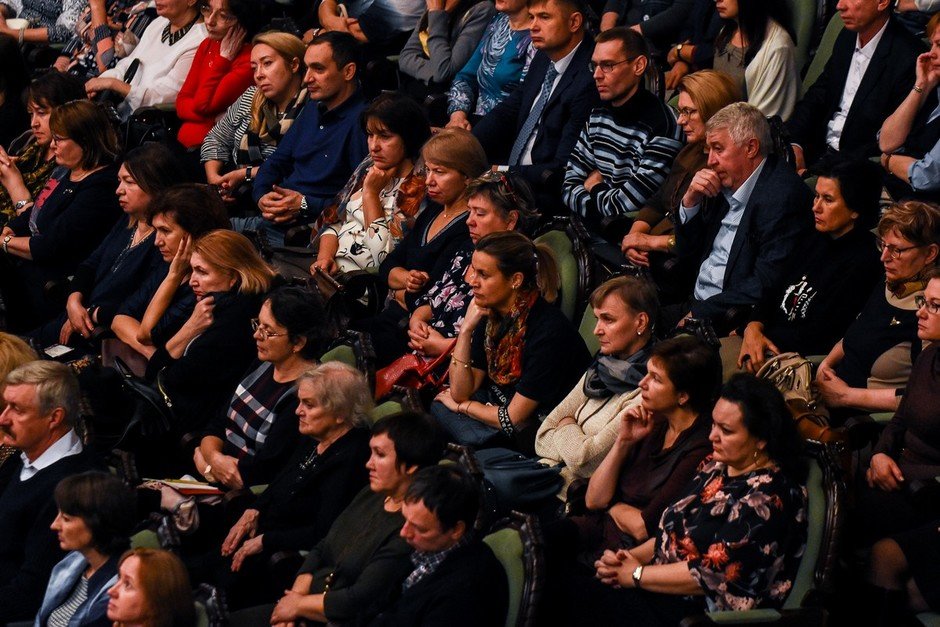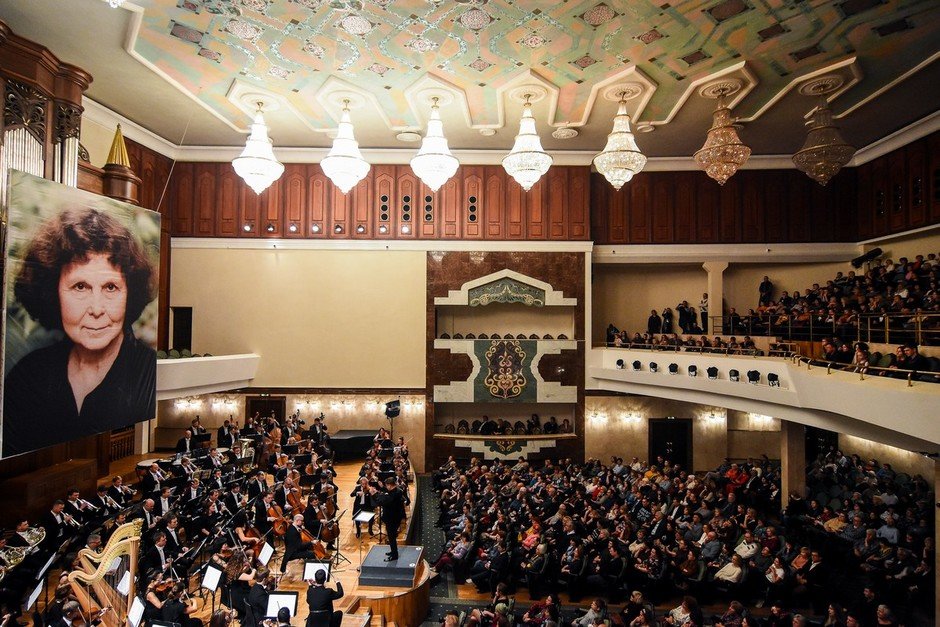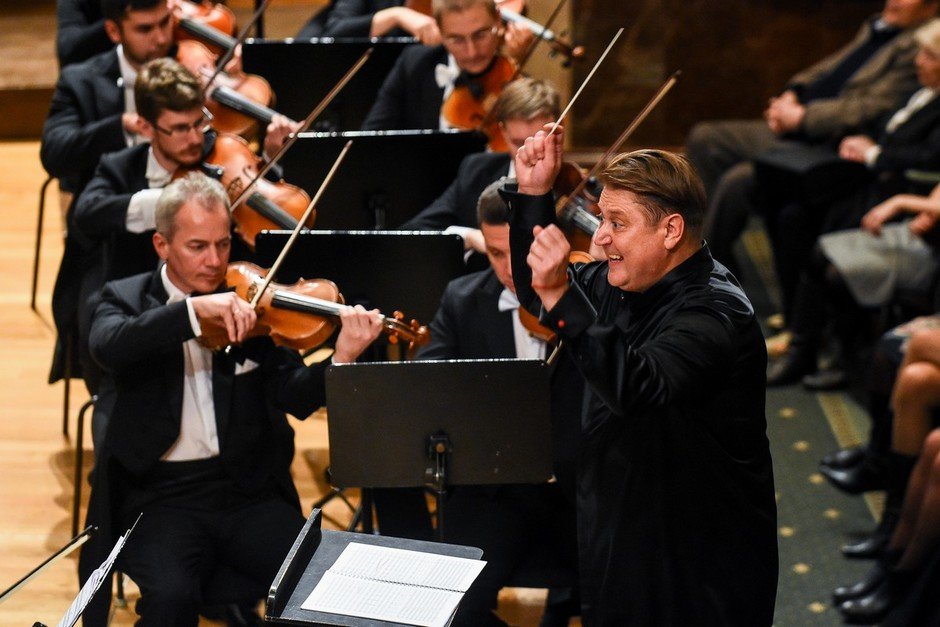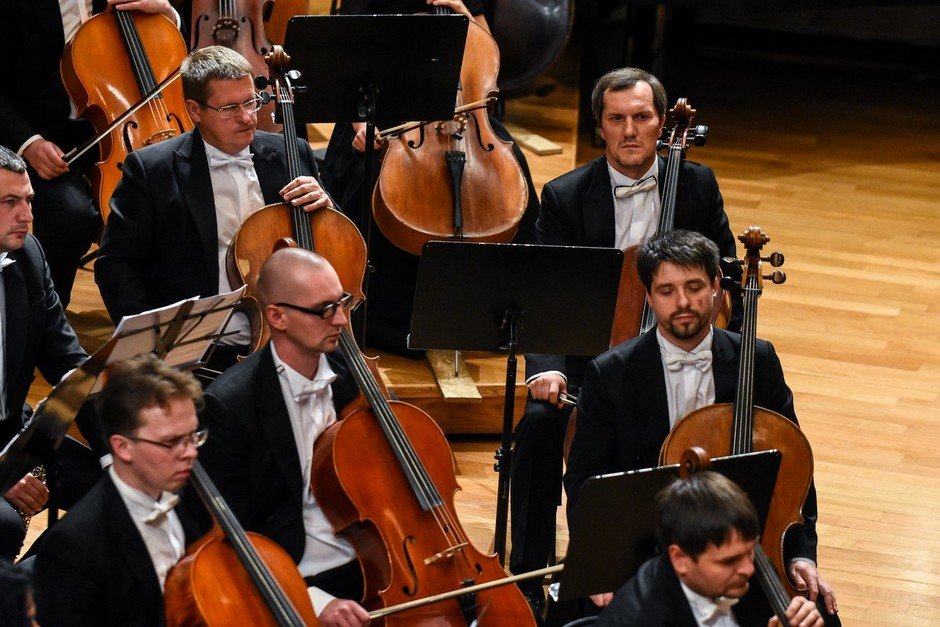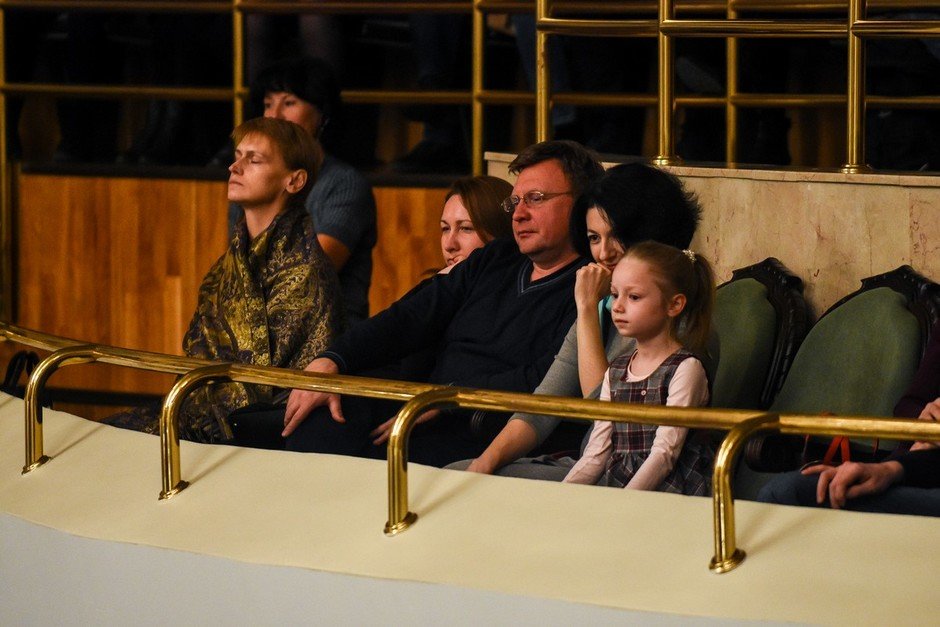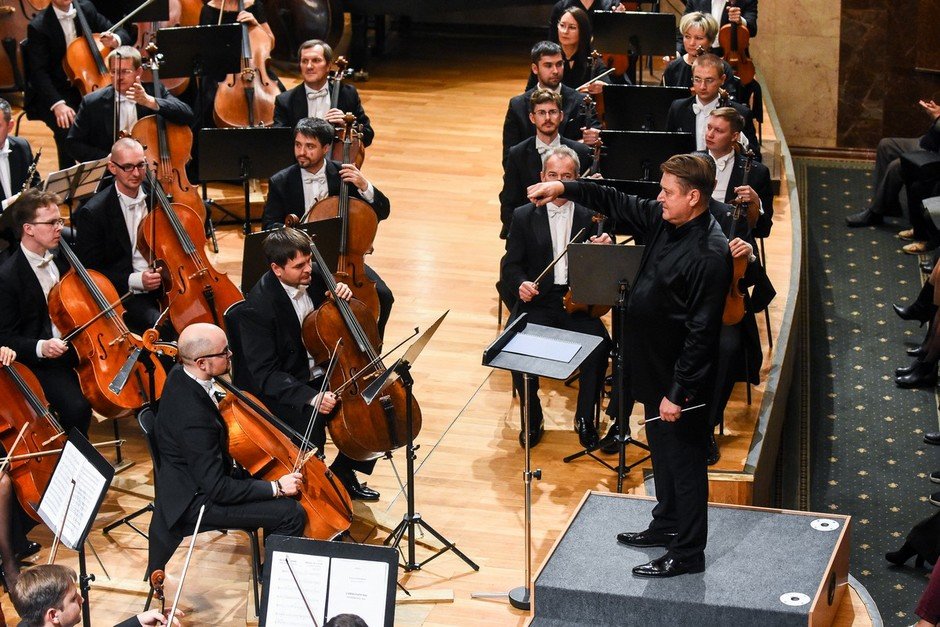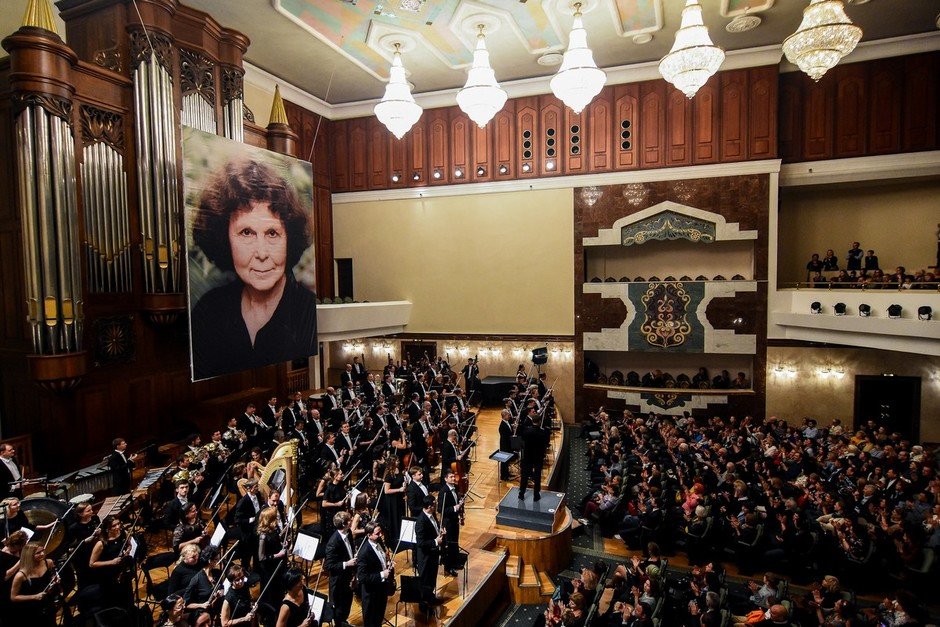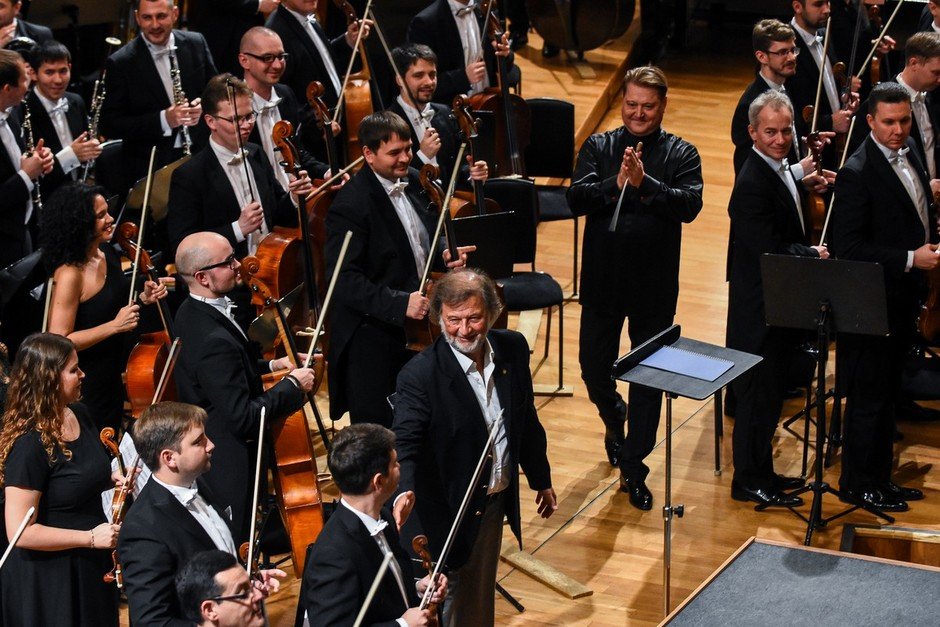Concordia contemporary music festival: victory over Twilight
The second concert of Concordia international contemporary music festival named after Sofia Gubaidulina took place in the State S. Saydashev State Big Concert Hall on 24 October. This evening was dedicated to Aleksey Rybnikov's music.
New senses
During the press scrum opening the first part of the concert, Aleksey Rybnikov said the interpretation of his compositions by chief conductor and art director of the Tatarstan State Symphony Orchestra Aleksandr Sladkovsky was a pleasant surprise. Indeed, the maestro has a rare ability to give a music material new senses by passing it through his soul. No, he doesn't refuse an author's idea, Sladkovsky is very careful and meticulous about scores. He seems to simply have a gift to enter an author's consciousness. There is no sense in talking about how he does it – it's the mystery of the talent and incredible musical intuition.
As for that evening's concert, Aleksey Rybnikov's all compositions became a premiere for Kazan music fans who filled the concert hall to the full. It's one of the supertasks of the contemporary music festival – to educate. Every festival evening allows the audience to acquaint with new compositions that haven't been performed in Kazan before.
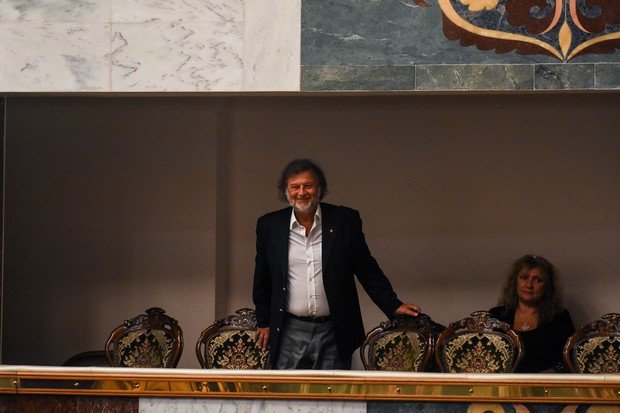
Aleksey Rybnikov, whose compositions made up the programme of that evening, doesn't need to be introduced, of course. It's one of the brightest Russian composers, the author of the first rock opera in the USSR The Star and Death of Joaquin Murieta, the author of holy Juno and Avos staged by Mark Zakharov on the Lenkom Theatre's stage that listeners love.
Rybnikov's Liturgy of the Catechumens became a landmark in world music. Mr Rybnikov writes music for films and shoots them himself, he created symphony music, chairs his theatre. His two films – Spirit of the Sonoran Desert and Liturgy of the Catechumens – will appear on the screen soon. The premiere of his opera War and Peace. Andrey Bolkonsky will take place on the stage of the M. Djalil Tatar State Academy Opera and Ballet Theatre in the next seasons. His compositions selected for the festival's poster were performed in Kazan for the first time, and it was an evening of premieres for the festival's audience.
Musical vernissage
The first part of the concert was dedicated to Aleksey Rybnikov's Symphony Paintings. They were written in different years, and the author reserved the right to replenish them with new compositions if desired.
The first composition is the earliest. It's Skomorokh created in 1969. The bright musical nature conquered the hall from the first minutes. And one could immediately remember Rybnikov's words that Sladkovsky's interpretation was new and unexpected. The maestro caught tragic notes with easy cheerfulness, skomorokh is Rus is jokes mixed with tears.
Night Song is the second composition that seemed to be made of sunbeams and thunderclouds. The composer seems to be remembering some of his early compositions separating the things linked with love in a pile.
Love in Night Song is the feeling that makes ''sons and stars move''. The orchestra's concertmaster, laureate of international contests Alina Yakonina performed the violin part in Night Song. Her violin sounded both dramatically and tenderly communicating the slightest nuances of Rybnikov's music.
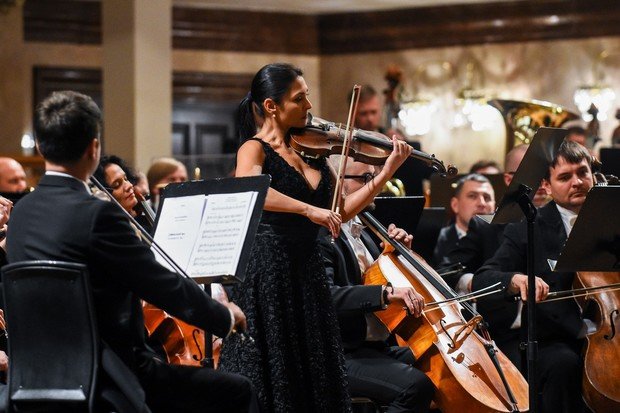
Symphony Paintings ended with a composition the composer called Lycia Music. It was created in 2012 and is dedicated to the death of the ancient state of Lycia, which was located on the territory of modern Turkey. The death of the people, the death of the culture, the mysteries that are stored now hidden by time, a desire to unveil them – this is how Aleksandr Sladkovsky was interpreting Lycia Music.
A conductor here is a time guide, as a person who possesses the secret knowledge, every musical phrase becomes for him a kind of sign on the way to mysterious Lycia. Some mystery of Rybnikov's music was accurately understood by Sladkovsky.
Aleksey Rybnikov's Symphony No. 6, Twilight, as its author called it, was the second part of the concert. It's a terrifying world immersed in darkness, and a beam of light, a flash of hope given to the human by Saviour. Each of us has a choice – to stay in the twilight or go towards the light. It's a complicated, unclear composition where the composer's philosophic searches are linked with his religious feeling, and Rybnikov is a very religious person.
Conducting the orchestra that was performing Rybnikov's Symphony No. 6, Aleksandr Sladkovsky was focused to the max and self-absorbed. The maestro here was like a wandering philosopher who shares the new knowledge he acquires. He dives into philosophic depth together with the composer, he looks for answers to eternal questions. And, as it usually happens to Russian culture, there is a shy light of the candle, hope in the maestro's interpretation in the symphony's final that Light and Good will win.
